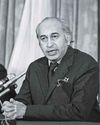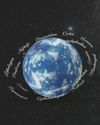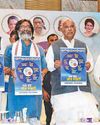
IT has been about five years since the abrogation of Article 370 and yet a profound ambivalence still lingers in the air in Kashmir. The people remain caught in a web of uncertainty—torn between two competing realities. On the one hand, there is an undeniable sense of loss—the stripping away of a special status that once defined the region’s unique identity within the Indian Union—and on the other, there is a tentative hope that perhaps this new order will bring opportunities that the past had failed to deliver. But the question still haunts the Valley: Was the removal of Article 370 a blow to their autonomy or a gateway to a more prosperous future? The answer, it seems, is elusive. Each person harbours their own truth, their own sense of what has been lost and what may yet be gained. And in this symphony of emotions, where grief and hope play out in uneasy harmony, one thing is clear: no one quite knows which note to strike.
Whatever happened to Article 370 and whatever emotional toll it has had on the minds and souls of the people of Kashmir, time has kept its steady pace and life has never ceased to exist in this part of the world, as was otherwise assumed from time to time. Time, in its implacable stride, continues its course. Yet time’s steady march is not without irony for it moves like a river, cutting through mountains yet softening the stone. As we see in Kashmir, there is a curious and perhaps unsettling normalcy that has taken root. The streets are no longer echoing with the chants of protest, the strikes that once paralysed the Valley have become relics of a past era. There are no more stones hurled in anger, no more children rendered blind by the cold brutality of pellet guns. Kashmir, once a land of unspoken grief, has found itself lifted from the prime-time news cycle where once it was a constant subject of debate. A silence thick as a mist has enveloped the Valley, but it is a silence that holds its own secrets.
Bu hikaye Outlook dergisinin October 11, 2024 sayısından alınmıştır.
Start your 7-day Magzter GOLD free trial to access thousands of curated premium stories, and 9,000+ magazines and newspapers.
Already a subscriber ? Giriş Yap
Bu hikaye Outlook dergisinin October 11, 2024 sayısından alınmıştır.
Start your 7-day Magzter GOLD free trial to access thousands of curated premium stories, and 9,000+ magazines and newspapers.
Already a subscriber? Giriş Yap

Trump, Up And Charging
'Many countries are nervous about Donald Trump returning to power, but India is not one of them'

Post and Past the Oil in Azerbaijan
As the UN climate conference takes place in Baku, Azerbaijan traces the history of the hydrocarbon industry through the lens of postage stamps

Bhutto's Nehru Story
Nehru's principle of \"compromise and argument\" remains the only workable formula for South Asian leaders

Breathless on Bachchan
Cédric Dupire's documentary The Real Superstar is an irreverent, experimental archive of Amitabh Bachchan's life and his stardom

The Anaphora to Zeugma of the Queen's English
Shashi Tharoor's book is a logophile's candy shop, full of fun, surprises and insights

The Wind Knocked
THE wind knocked on the door. Hesitantly. Wanting to be let in. It had heard the murmuring of the flames. And knew that there was a fire. The wind sought shelter.

The Way Home
“We comfort ourselves by reliving memories of protection. Something closed must retain our memories, while leaving them their original value as images. Memories of the outside world will never have the same tonality as those of home and, by recalling these memories, we add to our store of dreams; we are never real historians, but always near poets, and our emotion is perhaps nothing but an expression of a poetry that was lost.”—Gaston Bachelard, The Poetics of Space

The War Artist
Cartoonist and journalist Joe Sacco is in search of the truths distorted by conventional narratives

Mining Adivasi Votes
If the BJP manages to win Jharkhand, it will be the third mineral-rich state after Odisha and Chhattisgarh that will fall into the party's kitty

Unequal Republic
Political parties make promises of equal represention to women, but patriarchy continues to dominate electoral democracy